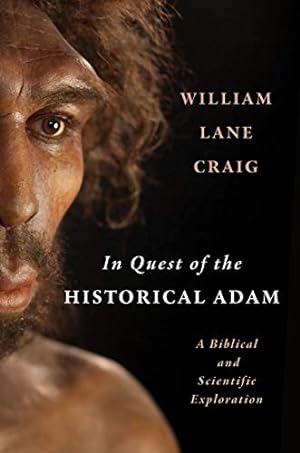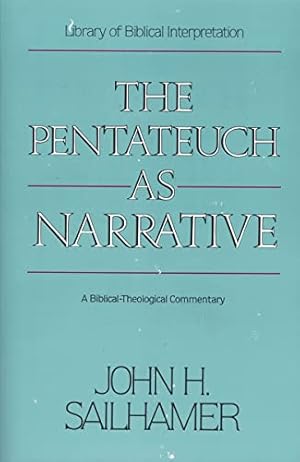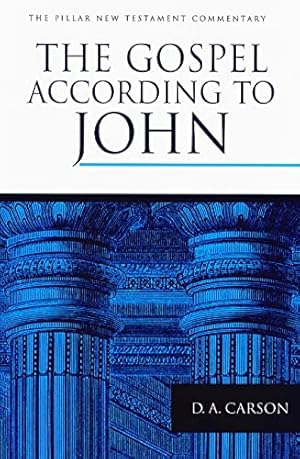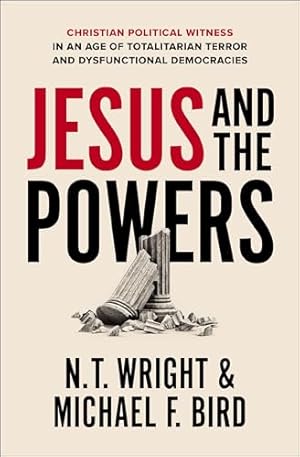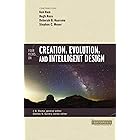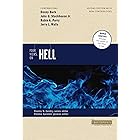| Print List Price: | $19.99 |
| Kindle Price: | $13.99 Save $6.00 (30%) |
| Sold by: | HarperCollins Publishing Price set by seller. |
Your Memberships & Subscriptions

Download the free Kindle app and start reading Kindle books instantly on your smartphone, tablet, or computer - no Kindle device required.
Read instantly on your browser with Kindle for Web.
Using your mobile phone camera - scan the code below and download the Kindle app.

Four Views on the Historical Adam (Counterpoints: Bible and Theology) Kindle Edition
Were the biblical Adam and Eve historical figures, or are the early events described in Genesis primarily symbolic in nature?
Behind the debate of a historical Adam is the age-old debate about evolution and the agreement between Scripture and science. With an introduction that outlines the history and main points of every viewpoint from Darwinism to Young Earth Creationism, this book then clearly outlines four primary views on Adam held by evangelical Christians.
Contributors include Denis O. Lamoureux, John H. Walton, C. John Collins, and William Barrick. Each focuses his essay on answering the following questions:
- What is the biblical case for your viewpoint, and how do you reconcile it both with modern science and with passages and potential interpretations that seem to counter it?
- In what ways is your view more theologically consistent and coherent than other views?
- What are the implications of your view for the spiritual life and public witness of the church and individual believers, and how is your view a healthier alternative for both?
This book allows each contributor to not only present the case for his view, but also to critique and respond to the critiques of the other contributors, allowing you to compare their beliefs in an open forum setting to see where they overlap and where they differ.
Concluding reflections by pastor-scholars Gregory A. Boyd and Philip Graham Ryken highlight the significance of the topic in the faith of everyday believers.
The Counterpoints series presents a comparison and critique of scholarly views on topics important to Christians that are both fair-minded and respectful of the biblical text. Each volume is a one-stop reference that allows readers to evaluate the different positions on a specific issue and form their own, educated opinion.
- LanguageEnglish
- PublisherZondervan Academic
- Publication dateDecember 10, 2013
- File size3565 KB
Shop this series
See full series-
Next 3 for you$25.97
-
Next 5 for you$44.45
-
Next 10 for you$75.90
-
All 36 available$319.14
-
Next 3 for you$25.97
-
Next 5 for you$44.45
-
Next 10 for you$75.90
-
All 36 available$319.14
This option includes 3 books.
This option includes 5 books.
This option includes 10 books.
This option includes 36 books.
Customers also bought or read
- The Genealogical Adam and Eve: The Surprising Science of Universal Ancestry
 Kindle Edition$16.99$16.99
Kindle Edition$16.99$16.99 - Seven Things I Wish Christians Knew about the Bible#1 Best SellerChristian Bible Handbooks
 Kindle Edition$1.99$1.99
Kindle Edition$1.99$1.99 - Reading Genesis Well: Navigating History, Poetry, Science, and Truth in Genesis 1-11
 Kindle Edition$24.99$24.99
Kindle Edition$24.99$24.99 - The Story of Christianity: Volume 1: The Early Church to the Dawn of the Reformation
 Kindle Edition$19.99$19.99
Kindle Edition$19.99$19.99
Customers who bought this item also bought
From the brand

Scroll right for more.
-
Shop Zondervan Academic
-
New Releases
-

Zondervan Academic serves the needs of Christian scholars, pastors, and students. Since 1931, we have been privileged to partner with the scholarly community to develop Christ-honoring resources in service of the academy and the church worldwide.
Together we produce works in various areas of biblical-theological studies that exhibit faithfulness to historic Christian faith, cultural relevance, excellence, and innovation.
From the Publisher

Leading biblical scholars discuss urgent topics of theology, the Bible, and the church.
Celebrated Editors and Contributors

Wayne Grudem
Wayne Grudem (PhD, University of Cambridge; DD, Westminster Theological Seminary) is distinguished Research Professor of Theology and Biblical Studies at Phoenix Seminary and the author of the bestselling Systematic Theology.
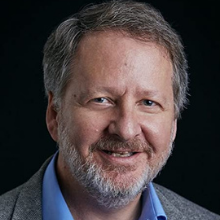
Mark L. Strauss
Mark L. Strauss (Ph.D., Aberdeen) is University Professor of New Testament at Bethel Seminary San Diego, where he has served since 1993. He is the author of various books and articles including commentaries on Mark's Gospel in the Zondervan Exegetical Commentary Series (2014) and Expositors Bible Commentary (2010).

Preston Sprinkle
Dr. Preston Sprinkle has a Ph.D. from Aberdeen University (Scotland). He is a New York Times bestselling author. His books include Erasing Hell and Living in a Gray World.

William Lane Craig
William Lane Craig is Research Professor of Philosophy at Talbot School of Theology and Professor of Philosophy at Houston Baptist University.
Complete your library with other books in the Counterpoints series!
The Bible has long served as the standard for Christian practice, yet believers still disagree on how some biblical passages should be interpreted and applied.
The Counterpoints series presents a comparison and critique of scholarly views regarding topics important to Christians that are both fair-minded and respectful of the biblical text. Each volume is a one-stop reference that allows readers to evaluate the different positions of a specific issue and form their own, educated opinion.
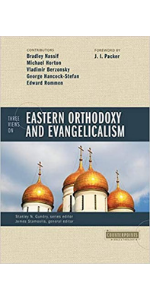
|
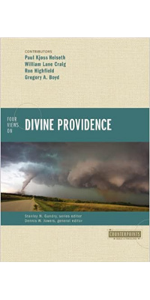
|

|

|
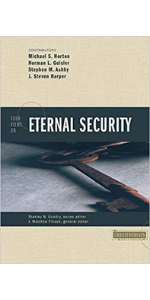
|
|
|---|---|---|---|---|---|
| Three Views on Eastern Orthodoxy and Evangelicalism | Four Views on Divine Providence | Four Views on the Spectrum of Evangelicalism | Are Miraculous Gifts for Today? | Four Views on Eternal Security | |
| Customer Reviews |
4.4 out of 5 stars
36
|
4.4 out of 5 stars
95
|
4.5 out of 5 stars
39
|
4.5 out of 5 stars
154
|
4.6 out of 5 stars
70
|
| Price | $20.19$20.19 | $12.35$12.35 | $12.81$12.81 | $16.79$16.79 | $15.99$15.99 |
| Editor | James J. Stamoolis | Dennis Jowers | Andrew David Naselli & Collin Hansen | Wayne Grudem | J. Matthew Pinson |
| Page Count | 302 | 272 | 224 | 368 | 304 |
| e-book | ✓ | ✓ | ✓ | ✓ | ✓ |

Editorial Reviews
About the Author
Product details
- ASIN : B00BW2U54G
- Publisher : Zondervan Academic (December 10, 2013)
- Publication date : December 10, 2013
- Language : English
- File size : 3565 KB
- Simultaneous device usage : Up to 5 simultaneous devices, per publisher limits
- Text-to-Speech : Enabled
- Screen Reader : Supported
- Enhanced typesetting : Enabled
- X-Ray : Enabled
- Word Wise : Enabled
- Print length : 401 pages
- Best Sellers Rank: #708,981 in Kindle Store (See Top 100 in Kindle Store)
- #93 in Christian Process Theology
- #290 in Christian Old Testament Criticism
- #367 in Religious Studies - Science & Religion
- Customer Reviews:
About the authors
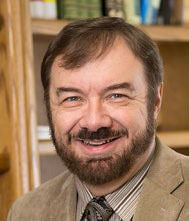
A. B. Caneday (Ph.D., Trinity Evangelical Divinity School) is retired Professor of New Testament & Greek at University of Northwestern - St. Paul (St. Paul, Minnesota), where he has taught since 1992. He has served in pastoral ministry and actively teaches in various venues including churches and institutions, domestic and abroad. He co-authored The Race Set Before Us with his friend Tom Schreiner, co-editor of Four Views on the Historical Adam, and has contributed numerous essays to significant anthologies and to scholarly journals. He is a board member and contributor to Christ Over All (https://christoverall.com) and blogs at All Things Christian (https://abcaneday.com).
He and his wife, Lois, live in Minneapolis. They have two adult sons, both married, and six grandchildren.
He is a participating member in SBL, IBR, and ETS.
Recent ventures are Founding Teaching Elder of Christ Bible Church (https://christbible.net) and Board Member and Contributing Writer at Christ Over All (https://christoverall.com).

Discover more of the author’s books, see similar authors, read book recommendations and more.

Matthew Barrett is Professor of Christian Theology at Midwestern Baptist Theological Seminary, as well as the founder of Credo Magazine and host of the Credo Podcast. He is also the Director of the Center for Classical Theology. He is the author of several books, including Simply Trinity: The Unmanipulated Father, Son, and Spirit, which won the Christianity Today Book of the Year award in Theology and Ethics. He is currently writing a Systematic Theology for Baker Academic.
Customer reviews
Customer Reviews, including Product Star Ratings help customers to learn more about the product and decide whether it is the right product for them.
To calculate the overall star rating and percentage breakdown by star, we don’t use a simple average. Instead, our system considers things like how recent a review is and if the reviewer bought the item on Amazon. It also analyzed reviews to verify trustworthiness.
Learn more how customers reviews work on AmazonCustomers say
Customers find the book a useful introduction to various views on historical Adam. They appreciate its historical accuracy and the author's high view of Scriptures. However, opinions differ on the pacing - some find it engaging and lively, while others feel a chapter is weak or combative.
AI-generated from the text of customer reviews
Customers find the book a useful introduction to various views on the historical Adam. They say it provides an informative summary of four evangelical views. The viewpoints are well-presented for the limited space each author has. Overall, customers consider it an important resource for the coming controversy that threatens the unity of many local churches.
"...He holds to a high view of the Scriptures and believes his view best accounts for the consistent testimony of the biblical authors (Moses and Paul)..." Read more
"...accounts for the presence of evil in the world, clarifies the biblical position on sexual identity and family relationships, assures us that we are..." Read more
"...His essay is like William Barrick's, except it is better supported by Scripture, free from harsh rhetoric, and very encouraging." Read more
"I greatly enjoyed this book. It was difficult in places and the four (actually six) essays differed in quality...." Read more
Customers appreciate the historical accuracy of the book. They mention that Adam is a real, historical person and that it was written as history.
"...There are four views presented: (1) No Historical Adam - presented by Denis Lamoureux, Professor of Science and Religion at St. Joseph.s College in..." Read more
"...that in addition to emphasizing the need for Adam to be a real, historical person, Barrick parts ways with his fellow contributors by rejecting any..." Read more
"...He has an interesting view of historical but not ‘literalistic,’ while arguing that we should not get too bogged down on this historical person of..." Read more
Customers have mixed opinions about the pacing of the book. Some find it engaging and lively, while others feel some parts are weak and combative.
"...I found Lamoureux’s view biblically indefensible and woefully inadequate as he assaults the biblical text and the biblical storyline...." Read more
"...The strongest and most valuable portions of the book are the lively and substantive exchanges between Lamoureux, Walton, and Collins, particularly..." Read more
"...Science aside, this view also fails in light of literature and history, which is clearly demonstrated by the other views...." Read more
"Every book on this series address an interesting and very complex topic on Christian faith...." Read more
Top reviews from the United States
There was a problem filtering reviews right now. Please try again later.
- Reviewed in the United States on December 13, 2013In this counterpoint book the subject of the Historical Adam takes center stage. There are four views presented: (1) No Historical Adam - presented by Denis Lamoureux, Professor of Science and Religion at St. Joseph.s College in the University of Alberta; (2) A Historical Adam: The Archetypal Creation View - presented by John Walton, Professor of Old Testament at Wheaton College; (3) A Historical Adam: Old Earth Creation View - presented by C. John Collins, Professor of Old Testament at Covenant Theological Seminary; and (4) A Historical Adam: Young-Earth View - presented by William D. Barrick, Professor of Old Testament at The Master's College.
The format of the book is as follows: Each Professor writes on essay addressing three essential questions: (1) What is the biblical case for your viewpoint, and how to you reconcile it with passages and potential interpretations that seem to counter it? (2) In what ways is your view more theologically consistent and coherent than other views? (3) What are the implications your view has for the spiritual life and public witness of the church and individual believers, and how is your view a healthier alternative for both? Upon answering these questions each scholar counters followed by a rejoinder from the presenter. At the end of the book there are two essays representing two different stances on the debate and impact on the Christian faith by Greg Boyd (Senior Pastor at Woodland Hills Church in St. Paul, Minnesota) and Philip Ryken (President of Wheaton College and the former pastor of Tenth Presbyterian in Philadelphia).
I Appreciated the personal testimony of Denis Lamoureux's pursuit of truth in the fields of science and theology. He has definitely wrestled with and struggled with all the issues at hand - as a non-believer, as well as a believer in Christ. Lemorourex concludes that his view of evolution disallows for belief in the historical Adam that is revealed in the Scriptures. He argues at length that the realities of history conflicts with modern science. He believes that ancient science (the view of the biblical writers) conflicts with modern science and therefore what we have in the Bible is God accommodating inerrant spiritual truths.
In summary "Lamoureux rejects scientific concordism, the idea that God chose to reveal through the Scriptures certain scientific facts and that modern science, properly understood, can be aligned with the Bible. To the contrary, he says the authors of Scripture had an ancient perception of the world, apparent in their belief in a three-tiered universe, their view of the 'firmament,' and elsewhere. When it comes to humanity's biological origins, the biblical authors likewise had a primordial understanding. They held to 'de novo creation,' the belief that God created man and everything else directly, immediately, and completely, that is fully mature."
Lamoureux argues that Adam did not exist, but that Jesus Christ is a historical person who died and rose again for our sins. He attempts to show how modern science has changed his views on interpreting the Bible through understanding distinctions between ancient and modern science, language accommodation, and his rejection of concordism.
I found his essay to be interesting, but unconvincing. I especially struggled with his weak theological explanation of the historical "Adam" from the lips of Jesus and the Apostle Paul in the New Testament. I also struggled with his interpretation of Genesis 1-11 as not being historical. Lastly, I found his interpretation and methodology in arriving at his conclusions insufficient - leaving me with more questions than answers. I agree with C. John Collins assessment of his essay when he writes, "Lamoureux has followed a style of reasoning that is oversimplified, specifically in that he generally poses either/or questions with only two options; he does not consider whether there are alternatives."
In contrast to Lamoureux, John Walton believes that Adam was a historical person. He believe's that the primary emphasis of the Bible and Ancient Near Eastern literature is to demonstrate that Adam (and Eve) are archetypal representatives of humanity. He believes that Genesis 2 is not about the biological origins of Adam and Eve. He argues that Adam and Eve may not even be the first humans who came into existence or the parents of all humankind. Walton doesn't reject or accept evolution, but his view does allow for evolution and an old earth. I found Walton's essay to be difficult to follow and his discussion of archetypes to be interesting, but not totally sustainable.
C.J. Collins, like Walton, agrees that Adam and Eve were real historical persons. He demonstrates in his essay with great theological precision how a real Adam and Eve are necessary to demonstrate our need of Savior (the second Adam - Jesus) to save us from the sin we inherited as legitimate children of Adam's race. He does a wonderful job of showing that the story line of the Scriptures reveals three major truths: (1) Adam and Eve as a pair represent humankind as one family; (2) Adam and Eve were created supernaturally by God; (3) Through Adam and Eve came forth sin. As a result all humanity is guilty before our creator God for our experience as sinners, and in need of redemption from the perfect Adam - the Lord Jesus Christ.
An interesting aspect of Collins' view of Adam is that he may have been the chieftain of his tribe, i.e., there were perhaps many more people around when Adam and Eve were around. He is also critical of theistic evolution because it fails to account for the special creation of human beings as made in the image of God. He does not believe that a literal twenty-four hour days in Genesis One is required to maintain inerrancy.
Michael Barrick, expounds the most traditional of the four views presented. He argues for the supernatural creation of Adam by God, who is the father of all mankind. Barrick gives the most emphasis of the four views to the significance of Adam in understanding and applying the gospel. He holds to a literal twenty-four days and young earth perspective. He holds to a high view of the Scriptures and believes his view best accounts for the consistent testimony of the biblical authors (Moses and Paul) with Jesus' teaching. Barrick's essay argues that when science and the Bible have a conflict - science must always concede for Scripture is inerrant and totally authoritative on all matters it addresses.
In the concluding section of the book Greg Boyd and Phil Ryken (Theologian/Pastors) address the following issues raised by the other essayists by answering the following six questions: Does Adam's existence or nonexistence (1) affect the rest of the Christian faith and those doctrines Christians have historically affirmed throughout the centuries? (2) shape a Christian worldview, especially the biblical story line from creation, fall, and redemption, to new creation? (3) have an impact on the gospel, or how the gospel is preached and applied, specifically in church? (4) have influence on how we live the Christian life and 'do church' as the body of Christ? (5) make a difference in our evangelical witness to a watching world? and (6) What is at stake in this debate for evangelicals in the church today?
Of the four views presented I found myself in the most agreement with Barrick, followed by Collins, then Walton, and lastly by Lamoureux. I think that Barrick's essay was the easiest to read because it was the essay that took the passages of Genesis at face value - literally. The other three essayists seemed to have to do a lot of hermeneutical gymnastics to make their views work. This is a complicated issue. I appreciated the grace reflected by Lamoureux, Collins, and Walton in particular. Barrick came across more defensive and dogmatic than the other three. At the end of the day, this book deserves a wide reading. It shows the immense complexities of hermeneutics, science, theology, history, and inerrancy. I appreciated what each writer taught me - I gained new knowledge and insights on all five of these topics. I had many questions answered, and yet still have many unanswered questions. My hope is that this book will continue to spark theologians and scientists to work together in the pursuit of truth. I am grateful for the time invested by all the contributors and heartily recommend this book. It is a challenging read, but well-worth the effort.
- Reviewed in the United States on February 18, 2014Few questions are more pressing among Evangelicals today than the time and the manner in which God created the world and all life within it. Did he create the world in six literal days or did he create the world over millions of years? Was human life a spontaneous creation of God or did it evolve from a primordial ancestor? The controversy is raging today with no clear end in sight.
Following closely in the wake of the discussion about creation is the controversy over whether or not Adam was a historical figure. Was Adam a real man who actually existed? Or is it possible that he is merely a figure or an archetype meant to teach us about God and about ourselves? Zondervan’s “Counterpoints: Bible and Theology” series has taken on this issue by inviting four scholars to defend their own view while interacting with others in Four Views on the Historical Adam.
Denis Lamoureux begins by insisting there was no historical Adam and he bases this on his evolutionary creation view. He believes that “the Father, Son, and Holy Spirit created the universe and life, including humans, through an ordained, sustained, and intelligent design-reflecting natural process.” He rejects the assumption that the biblical authors had any advanced knowledge of scientific facts and, therefore, says that they wrote the truth as they understood it, even though the scientific facts have since been proven wrong. This mean’s that Paul’s understanding that Adam was a historical figure is rooted in this faulty, ancient biology. Science has since proven the impossibility of one man being the father of all humanity.
John Walton follows with his conviction that while Adam and Eve are real and historical figures, “the biblical text is more interested in them as archetypal figures who represent all of humanity” than as real people. Therefore Genesis 2 does not mean to teach that Adam was actually formed from the dust of the ground and that Eve was actually formed from Adam, but that all of humanity is formed from dust and that we are all gendered halves. “If this is true, Genesis 2 is not making claims about biological origins of humanity, and therefore the Bible should be not viewed as offering competing claims against science about human origins.” In this view Adam and Eve may or may not be the first humans and they may or may not be the parents of the human race.
The third essay comes from C. John Collins who holds to an old-earth perspective on creation. He argues that “the best way to account for the biblical presentation of human life is to understand that Adam and Eve were both real persons at the headwaters of humankind.” Here he looks well beyond the opening chapters of Genesis and examines the larger biblical storyline. He argues as well that “the nature of the biblical material should keep us from being too literalistic in our reading of Adam and Eve, leading room for an Earth that is not young, but that the biblical material along with good critical thinking provides certain freedoms and limitations for connecting the Bible’s creation account to a scientific and historical account of human origins.”
The final essay comes from William Barrick. He holds that Adam is the originating head of the whole human race and believes that protecting Adam’s historicity is absolutely crucial if we are to maintain any number of doctrines including the inspiration and inerrancy of the Bible. He rejects evolutionary science and teaches that God created the world in six consecutive, literal days. He also closely links the first Adam with Christ, the second Adam who came to undo the first Adam’s sin and its tragic results. “Evangelicals should uphold and defend the uniqueness of the Genesis record and give it priority over ancient Near Eastern materials and modern science in all discussions of primeval history and the historicity of Adam and Eve.”
Following the format of the series, the authors are each given a few pages to respond to one another before the author of the essay provides one brief rejoinder. It is an effective format, even if a bit onerous at times.
I found Lamoureux’s view biblically indefensible and woefully inadequate as he assaults the biblical text and the biblical storyline. He insists that his view can and should fall well within the Evangelical mainstream, but, as the other authors point out, he utterly undermines any confidence in Scripture. Walton’s view was, in my assessment, far too difficult, depending on explaining away so much of what the Bible makes clear. It was as if he was constantly saying, “I know the Bible says this, but it actually means this other thing.” His view, too, threatens to undermine our confidence in the biblical text and depends far too heavily on other literature from the ancient near east.
Collins’ responses to the other authors, as well as his own essay, marked him as my favorite of the four authors, even though I cannot agree with his old-earth view. He carefully defends the authority of the biblical text and shows what we stand to lose if we allow a form of theistic evolution to explain Adam’s existence. William Barrick aptly defends the young-earth creation view and shows the danger we put ourselves in if we reject a historical Adam and if we allow ourselves to push too hard against the constraints of Scripture. I would have preferred a more winsome tone in his essay and in his responses to the other authors.
The book concludes with two pastoral reflections, one from Greg Boyd and one from Philip Ryken. Boyd’s could be passed over without any great loss, but in my view, Ryken’s essay is the best part of the whole book; his essay alone is worth the cost of the book and I hope it appears in the future in another medium, lest it be lost and forgotten here. He titles his essay, “We Cannot Understand the World or Our Faith Without a Real, Historical Adam” and goes on to prove it. He shows how many of the most important Christian doctrines stand or fall on the historicity of Adam. He shows that the historical Adam gives confidence that the Bible is the Word of God, explains humanity’s sinful nature, accounts for the presence of evil in the world, clarifies the biblical position on sexual identity and family relationships, assures us that we are justified before God, advances the missionary work of the church, and secures our hope in the resurrection of the body and the life everlasting. It is a powerful essay that reacts against the non-historical Adam and the archetypal view while showing that whatever we believe about the time involved in creation, we absolutely must affirm that Adam was a real, historical figure whose fall and redemption is intricately connected to our own.
While the writing in this book is dense at times, and while it may require circling back a few times, readers will be rewarded with a firm grounding in an important discussion and a heightened sense of just how much is at stake. Best of all, I trust they will come to see just how dangerous it is to reject the simple fact that Adam was a real man who really was spontaneously created by God and who really is the father of us all. Our our hope, our salvation, and the health of the future church, depend upon it.
Top reviews from other countries
 KendrickReviewed in Canada on August 16, 2017
KendrickReviewed in Canada on August 16, 20175.0 out of 5 stars Excellent book. Uses the only way I know how ...
Excellent book. Uses the only way I know how to show an unbiased understanding of a topic: having multiple authors with opposing views.
 Mr. S. J. MckeeReviewed in the United Kingdom on March 23, 2018
Mr. S. J. MckeeReviewed in the United Kingdom on March 23, 20185.0 out of 5 stars Great series
This is a great series and this book is a worthy addition. The dialogue is very good and Walton and Lamoureaux were very strong. Highly recommended
 nottomentionReviewed in Germany on September 20, 2014
nottomentionReviewed in Germany on September 20, 20145.0 out of 5 stars Superb and very helpful
I just recently have started to cram through this issue (in Germany among reformed Christian it's not so much discussed yet).
There might be no better overview and instructive guide towards the issues at hand with Evolution, creation and thus a historical adam.
I very much appreciate the book and find it very helpful. I enjoy the high level thinking which is nonetheless accesible for non-academic theologian (though I am one).
Get it!
 G. BudrikisReviewed in Australia on August 2, 2015
G. BudrikisReviewed in Australia on August 2, 20155.0 out of 5 stars Food for the Brain.
The "four views" books summarise points of disagreement and dispute within evangelical Christianity. They are generally excellent and this is no exception.
 Jacob AlexanderReviewed in the United Kingdom on May 11, 2016
Jacob AlexanderReviewed in the United Kingdom on May 11, 20165.0 out of 5 stars A Great Book
A very helpful book for an essay I wrote on the Adam of Genesis and Romans 5. Highly recommend for more general interest too.










